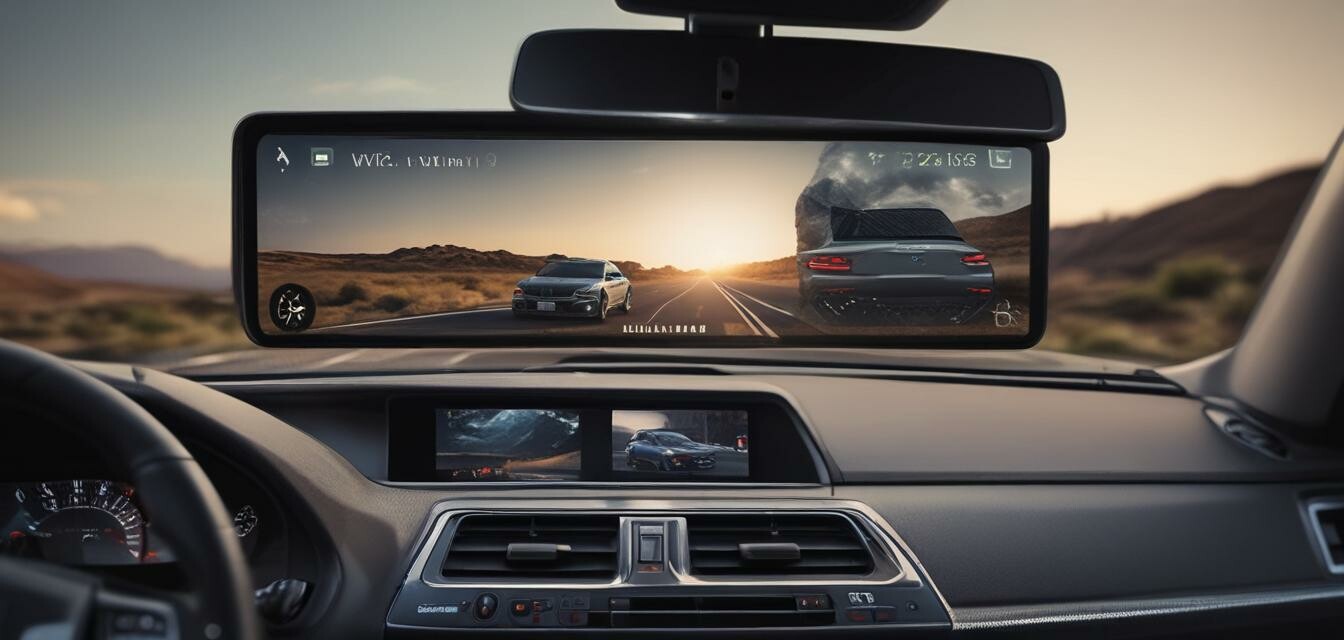
Emerging Technologies in Vehicle Dashcams
- Dashcams are evolving with technologies like 4K resolution, AI features, and cloud storage.
- Night vision and wide-angle capabilities enhance safety and footage quality.
- Wi-Fi enabled dashcams allow for easy file sharing and remote viewing.
- Understanding these technologies helps in making informed purchase decisions.
Discover the latest technological advancements in dashcams and how they enhance driver safety. As the automotive industry continues to advance, dashboard cameras are evolving into sophisticated devices packed with features designed for a safer driving experience. In this article, we will explore emerging technologies in vehicle dashcams and their importance in today's driving environment.
Understanding dashboard camera technology
Dashboard cameras, commonly referred to as dashcams, are critical in providing evidence during accidents and monitoring the road. However, advancements in technology have transformed these devices into multifunctional tools that go beyond mere recording. Let's delve into some of the most notable emerging technologies.
4K resolution and beyond
The demand for high-resolution video has led many manufacturers to develop dashcams that support 4K recording. This feature ensures sharper and clearer footage, making it easier to capture vital details such as license plates and road signs.
Artificial Intelligence (AI) features
With the integration of AI technologies, modern dashcams can now recognize various driving scenarios. For instance, some dashcams alert drivers of potential dangers and anomalies such as lane departures or collisions, thus enhancing overall road safety.
Night vision capabilities
Dashcams equipped with night vision technology provide an extra layer of security when driving after dark. Enhanced low-light performance ensures that critical moments are captured even in poor visibility conditions. This feature is particularly useful in low-light accidents or incidents that may occur at night.
Comparison of key features
| Feature | Benefits | What to look for |
|---|---|---|
| 4K Resolution | Clear and detailed footage | Ensure support for 3840×2160 resolution |
| AI Safety Features | Alerts for potential hazards | Check for features like collision warnings |
| Night Vision | Clear recordings in low light | Consider infrared technology |
| Wide-Angle Lens | Covers more of the view | Look for at least 150-degree viewing angle |
| Wi-Fi Connectivity | Easy file transfer and live viewing | Check for mobile app compatibility |
The rise of cloud storage in dashcams
Cloud storage is becoming increasingly important in the world of dashcams. With built-in cloud services, users can back up their footage remotely, ensuring that critical evidence isn't lost in case of theft or damage to the dashcam.
Additionally, cloud-connected dashcams offer real-time alerts and remote live viewing capabilities. This way, parents can monitor their teenage drivers, or fleet managers can manage company vehicles efficiently. Learn more about how to choose the right dashcam for your needs.
Popular features consumers are looking for
As dashcam technology evolves, certain features are gaining popularity among consumers:
- Dual Lens Capability
- Seamless Loop Recording
- Emergency SOS features
- GPS tracking and speed monitoring
These features enhance user experience and provide peace of mind while driving, making it essential to be informed about what technology is available in the market today.
Emerging trends in dashcam technology
As consumer needs grow, manufacturers are continuously innovating. Here are some trends that are shaping the future of dashcams:
- Integration with smart home devices: Expect functionalities that allow dashcams to connect with other smart devices.
- Enhanced data privacy: With privacy concerns on the rise, manufacturers are focused on creating more secure data handling methods.
- In-app features: Features that allow users to edit, review, and share footage directly from mobile applications are emerging.
Understanding these trends will help consumers make informed decisions when purchasing a dashcam. For a more in-depth comparison of different dashcam types, explore our section on dual lens dashcams.
Tips for choosing the right dashcam
- Determine your primary use: Is it for personal safety, insurance claims, or fleet management?
- Don't compromise on footage quality; higher resolution means better evidence.
- Consider additional features, but ensure they serve your needs efficiently.
- Read customer reviews to see real-world experiences with specific models.
Conclusion
The advancements in technology for vehicle dashcams reflect a broader trend towards enhancing road safety and providing drivers with invaluable tools to navigate risks. By staying informed about the latest features and understanding how they contribute to a safer driving experience, consumers can make better decisions when purchasing these devices. Ultimately, a well-chosen dashcam can be an essential partner in ensuring safety and providing peace of mind on the road.
Pros
- Increased safety through advanced features
- High-resolution footage helps with clarity
- Cloud connectivity ensures data security
- AI features provide real-time hazard alerts
Cons
- Some advanced features may drive up costs
- Learning curve with complex models
- Data privacy concerns with cloud storage
- Requires regular updates for optimal performance